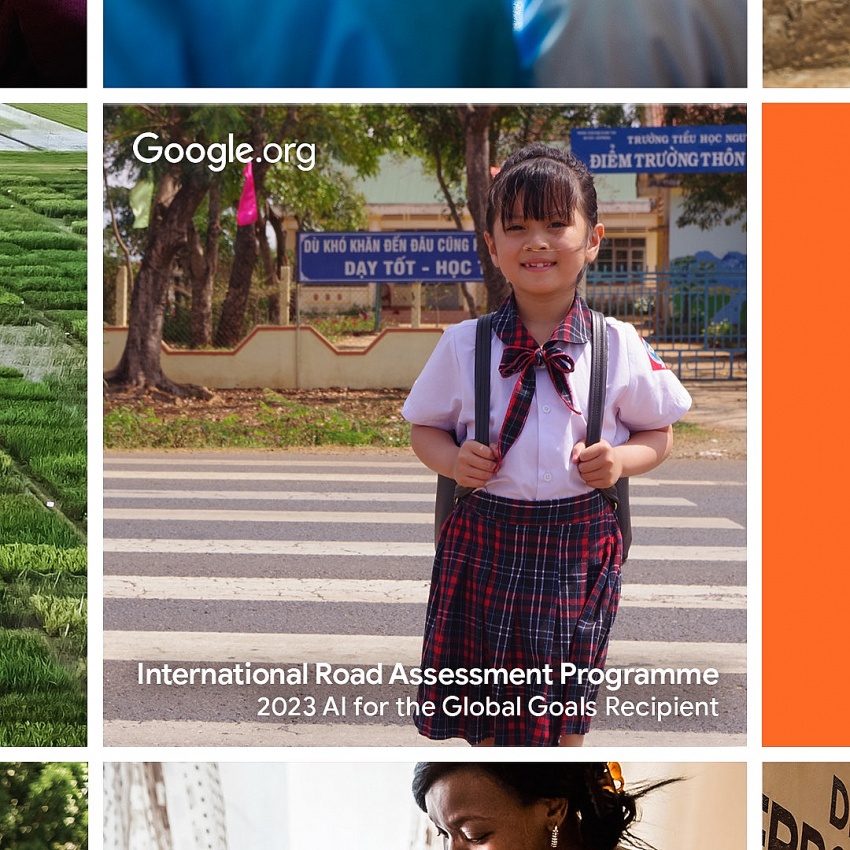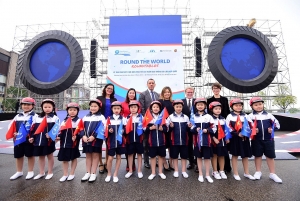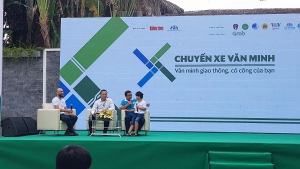Road safety charity iRAP to receive $2 million from Google
 |
Traffic accidents are the leading cause of death among children and young people worldwide, with over 100,000 people killed or suffering life-changing injuries on the world’s roads every day. The United Nations Sustainable Development Goals strive to halve road deaths and injuries by 2030 and member states have agreed on voluntary targets to improve road infrastructure safety by utilising the 'iRAP 3-star or better' global standard.
“The AI-enabled Star Rating for Schools partnership with Google.org is a global game-changer that will support sustainable mobility for youth and contribute to at least eight of the UN Global Goals,” iRAP CEO, Rob McInerney said. “We know that children are approximately 20 times more likely to be killed or injured on a 1-star road compared to a 5-star road. By using AI to identify high-risk 1- and 2-star roads that children use on their journey to school, we can identify known hazards and mobilise evidence-based upgrades that will save children’s lives.”
Satellite imagery and street-view images are used to detect road safety risks, so iRAP, together with partners AIP Foundation, Anditi, and the University of Zagreb, can provide a countrywide star rating evaluation of road infrastructure around schools in Vietnam and support upgrades for the most at-risk schools. The YEA Youth Engagement App will also be used to capture student perspectives.
“Road safety is an under-represented public health crisis that impacts people’s ability to access education, health, wellbeing and job opportunities,” said James Bradford, iRAP’s global technical director. “With AI and big data, we can maximise the effectiveness and efficiency of the rating process to allow governments to save time and resources.”
iRAP’s vision is for a world free of high-risk roads for all road users. Through iRAP’s global Star Rating for Schools and its strategic partnerships, the project has the potential to scale to other countries and inform new policies and investment in pedestrian-friendly roads that will minimise preventable harm.
“Our ultimate dream is to rate every road on earth and ensure every journey is safer. Achieving the UN target for more than 75 per cent of travel on 3-star or better roads will help save over 100 million deaths and injuries over the life of the upgrades. This partnership with Google.org is a big safe step in that direction,” said McInerney.
The deployment of Google.org’s AI for this project is part of Google’s company-wide commitment to help accelerate progress towards the UN’s Sustainable Development Goals. iRAP is one of 15 organisations receiving support through the $25 million philanthropy challenge for such projects that use AI. Most importantly, all the projects will be open-sourced, so other organisations can build upon the work.
 | Vietnam commits to United Nations road crash prevention goals On March 19, in Hanoi, the Vietnamese government handed a symbolic baton to United Nations (UN) Special Envoy for Road Safety Jean Todt to officially announce Vietnam’s commitment to implementing the UN’s road crash prevention goals. |
 | Road traffic safety campaign rolled out in Ho Chi Minh City A traffic safety campaign titled Civilized Trip has been launched in Ho Chi Minh City, targeting better safety awareness among residents while in traffic. |
What the stars mean:
★ Poor ★ ★ Promising ★★★ Good ★★★★ Very good ★★★★★ Exceptional
Related Contents
Latest News
More News
- Vietnam Television launches third 'Song Sau Lu' project for 2025 (December 15, 2025 | 08:00)
- Closing workshop highlights five-year impact of Fair for All project (December 12, 2025 | 16:22)
- Stakeholders mobilised before new child safety rules take effect (December 10, 2025 | 09:00)
- Vietnam receives emergency international relief as regional flooding intensifies (December 04, 2025 | 15:11)
- AmCham scholarships awarded to students (December 02, 2025 | 16:46)
- Vietjet flights carry love to devastated central region (November 28, 2025 | 11:35)
- SCG Sharing the Dream supports Vietnam’s youth and sustainable development goals (November 28, 2025 | 10:55)
- Siemens Caring Hands donates $34,700 for disaster relief in Vietnam (November 26, 2025 | 20:25)
- Ireland extends support for the Resilience First initiative (November 26, 2025 | 15:24)
- South Korea funds IOM relief for Vietnam’s typhoon-affected communities (November 24, 2025 | 15:33)

 Tag:
Tag:




















 Mobile Version
Mobile Version